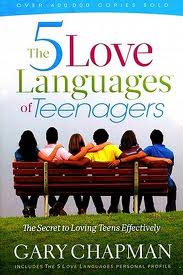 Do you have a young person (or people) in your youth group you secretly hope won’t show up each week? Are you a teacher that has students you’d prefer play truant than come to class? Or a parent who just doesn’t know how to deal with their teenage child.
Do you have a young person (or people) in your youth group you secretly hope won’t show up each week? Are you a teacher that has students you’d prefer play truant than come to class? Or a parent who just doesn’t know how to deal with their teenage child.
Today, we have some advice on how to deal with “problem teenagers”. It will seem counter-intuitive. It will feel impossible to do. The advice is only two words. But it’s vital.
The advice is this:
Praise them
When we deal with young people regarded as problem teenagers, it’s easy to do the opposite of giving them praise. We tell them off for doing something wrong. We nag at “problem teenagers” for doing something (or not doing something). It’s very easy to react this way, but fight the urge to focus on what they don’t do right and focus on what they do right. Here’s why:
1. Praise is one of the love languages for teens
In his book The Five Love Languages of Teenagers, Gary Chapman states that one of the love languages of teens is “Words of Affirmation” – i.e. praise. If your teen’s love language is praise – if when you say something complimenting them they glow inside and feel loved – how do you think they feel when you do the opposite of this?
When they get all As and one D on their report card and you focus on the D instead of all the As, do they feel loved?
When you tell them how they’re letting everyone down because they’re just too tired to go to band practice due to all their extra-curricular activities, do they feel loved?
When they show up to your youth ministry but smoke outside, you shout at them and ban them from attending for the next two months, do they feel loved?
If they feel love through being praised but only ever get the opposite of praise, it’s inevitable that they feel the opposite of loved. They feel hated.
2. It tells them what they’re doing right
Instead of telling them what they’re doing wrong, praise tells them what they’re doing right. Regardless of whether or not their love language is praise, if you constantly praise young people because of what they’re doing right, over time they’ll want to continue receiving this praise. Praise feels good.
Have you ever had your boss compliment you for something you did well? Did that make you more likely to do the same thing again, or less likely?
Exactly. Youth are the same.
But you don’t know what this young person’s like!
Actually, we probably do. Shae and I have worked as full-time foster parents for teenagers that have been in juvenile detention, in care, have mental health issues and more. We’ve had chairs thrown, had them try whipping us with their belt, been choked from behind and more. We know what “problem teenagers” act like. And the biggest focus of our work with them?
Praise
For every negative behavior we addressed with them, we praised them at least four times. In some cases, we praised them eight times for every negative behavior. And do you know what happened?
They changed.
The changes were sometimes big. Sometimes they were small. But positive change happened.
How does praise do this?
When you praise “problem teenagers” – or any youth – you’re telling them they’ve done something well. This makes them feel good and they want to feel good again.
They may not realize this. It might only ever be a subconscious reaction rather than a determined effort to repeat the positive behavior, but it’s there.
So when you praise, be specific and give an explanation. Don’t just say “Good job” or “Nice one”. Don’t get me wrong – any praise is good praise, so if you say “Good job” don’t try taking it back! Just back it up with the reason why they’ve done a good job and why this matters:
- Thanks for putting your hand up to ask a question (specific). When you do that it helps make sure we can all focus on what you’ve got to say (explanation).
- Well done on getting nearly all As on your report card (specific). This will help you get a high GPA so that you can get on the college course you want (explanation).
- Thanks for setting the table (specific). It means I can focus on making dinner so that it doesn’t get burned (explanation).
By being specific, the young person knows exactly what they’ve done right. Knowing what they’ve done right helps them to repeat the positive behavior in the future.
By giving an explanation, the young person knows why their positive behavior matters. Where possible, link the explanation to a way it benefits them. This isn’t to make them selfish or self-absorbed, but for “problem teenagers”, they’re more likely to want to do something again if the reason is that it benefits them, rather than someone else. They’ll also be happy that they didn’t get given a “Because” answer!
One final thought
We’ve referred to “problem teenagers” throughout the article as that’s the way it’s easy to view some young people. This taints our view of them though and makes it more likely that we’ll pick up on the things they do wrong, rather than the things they do right.
So instead of telling others about your “problem teenagers” or even just thinking to yourself that they’re “problem teenagers”, change the way you look at them.
See your son or daughter who you love.
See your student who has a future.
See your youth group member that wants to belong to something. Anything.
Don’t view the teenager as a problem, view some of their behaviors as the problem. Then, instead of focusing on the negative behaviors, commit to praising them at least four times for every time you address one of their negative behaviors.
And watch your relationship blossom.
Question: How have you seen praise change the young people you work with? We’d love to hear your inspiring examples in the comments below.
You can also connect with us by:
- Signing up to receive our posts via email
- Following us on Twitter
- Liking us on Facebook
- Signing up to our RSS feed
 I’d like to start by saying that I’ve done these self-esteem activities with mixed groups of boys and girls – self-esteem isn’t just a girls issue.
I’d like to start by saying that I’ve done these self-esteem activities with mixed groups of boys and girls – self-esteem isn’t just a girls issue.